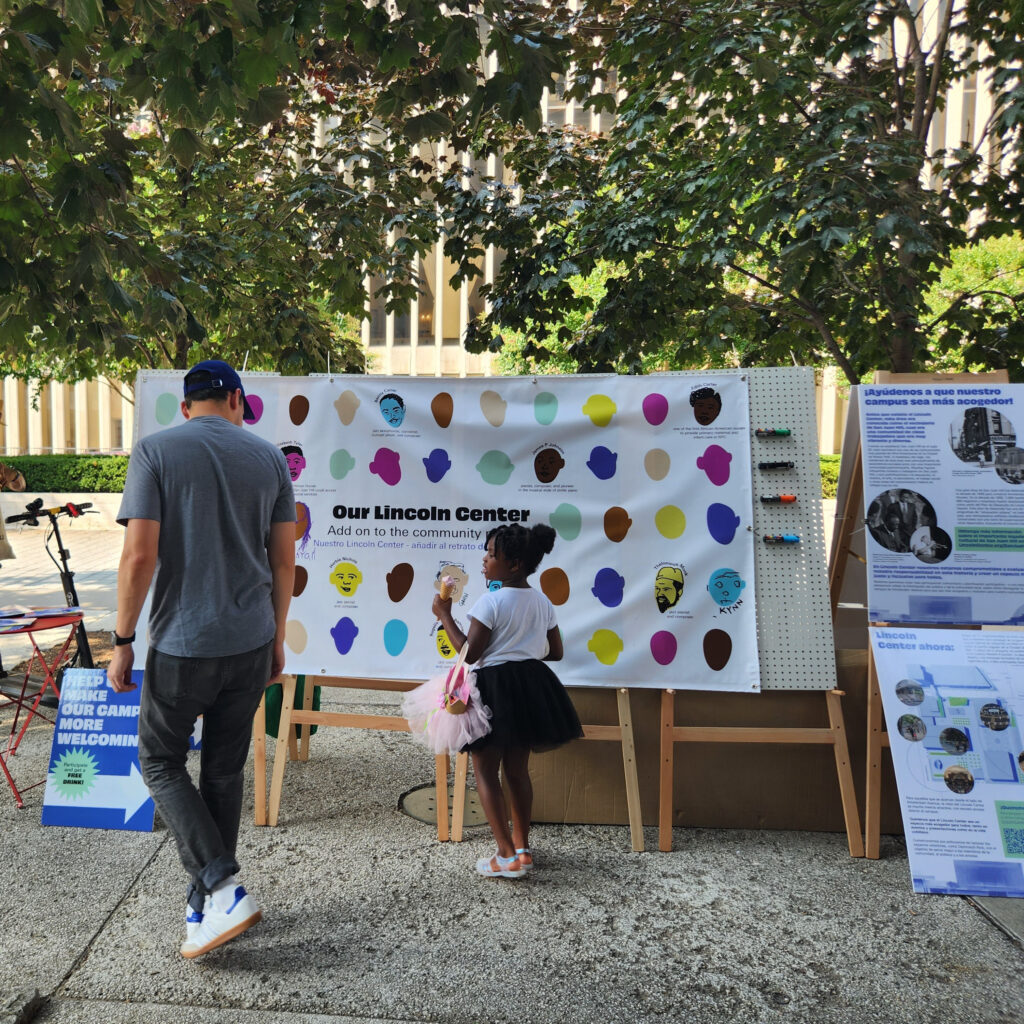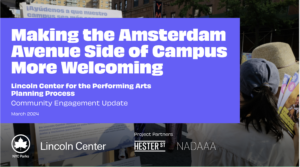In June 2023, Lincoln Center for the Performing Arts (LCPA) launched a participatory planning and public engagement process to reimagine the Amsterdam Avenue side of their iconic campus. To carry out this comprehensive visioning project, LCPA partnered with Hester Street (HST) and architecture/urban design firm NADAAA to gather input from the local community on how to improve access and make the physical environment more welcoming to residents.
The first stage of the planning process has centered on gathering information about how community members currently use Lincoln Center spaces, the challenges they face accessing and navigating the campus, and their ideas for improvement. For more details on the planning process, watch this short video from LCPA here.
Over the course of Lincoln Center’s 2023 Summer for the City series, which brings together artists and audiences in celebration of New York’s cultural communities, HST’s team engaged community members at numerous events, surveying them about their vision for the campus. Through this process, approximately 3,400 neighbors, advocates, community and educational leaders, elected officials, civic leaders, patrons of Lincoln Center and other members of the New York City community have shared their ideas, interests, questions, and feedback through interactive pop-ups, in-person and online surveys, a community mural and memory wall, community gatherings, interviews, and focus groups. During the fall of 2023, HST continued to engage neighboring NYC Housing Authority (NYCHA) residents, and students from nearby Martin Luther King Jr. Educational Complex and Fiorello H. Laguardia High School of Music & Art and Performing Arts to incorporate their feedback into the visioning process.
In March 2024, Lincoln Center announced the design team that will develop plans for the campus’ redesign based on feedback from all the community members who shared their input during the participatory planning process. Read the report that reflects the collaborative work of Lincoln Center, Hester Street, NADAAA, and NYC Parks and summarizes the visions participants shared through the planning process.
Lincoln Center’s renovation of the Amsterdam Avenue side of their campus is part of the organization’s Commitment to Change initiative, which seeks to address past harms and chart a more equitable course forward for this legendary cultural organization. From publicly acknowledging the legacy of the destruction of the San Juan Hill neighborhood that led to the creation of Lincoln Center, to designing a more welcoming and inclusive campus, HST’s work with Lincoln Center represents the positive change that large cultural institutions can make in the built and social environment.

